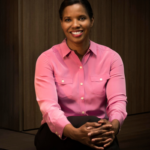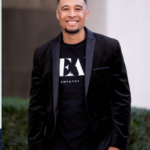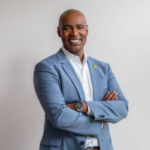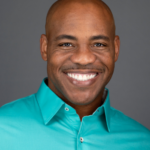Steve Long Robbins
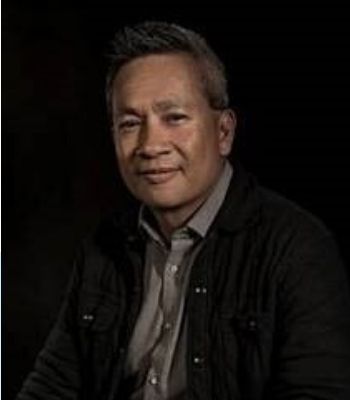
Corporate Diversity Training From A Scientific Perspective
Topic Categories:
Fee Range: Contact Speaker Exchange Agency
- Diversity, Inclusion & Cultural Competency Expert
- Thought leader and innovator of “Unintentional Intolerance”
- Developed ground-breaking approach to corporate diversity training, “What If? Factory”
*Fee ranges are presented as a guideline only. Speaker fees are subject to change without notice. For an exact quote, please contact your Speaker Exchange Agency representative.
A powerful storyteller with a powerful story to tell, Dr. Steve L. Robbins has an uncanny ability to inspire people even in the midst of disrupting and challenging the way they think about the world. Born in Vietnam, Dr. Robbins immigrated with his mother to the United States where they faced many challenges during a time when there was much anti-war and anti-Vietnamese sentiment.
Working through and rising out of the challenges of poverty, discrimination and the tough streets of Los Angeles, Dr. Robbins now brings insightful perspectives on issues of inclusion & innovation, leadership, and the power of caring. Drawing upon a compelling life journey, his talks and workshops are filled with intriguing stories, laugh-out-loud humor and a keen understanding of human behavior.
Dr. Robbins uniquely knows how to simultaneously challenge and motivate people with a dynamic use of storytelling, humor and extensive knowledge of pertinent issues and concepts. The inclusive power of his message are why organizations like Coca-Cola, Disney, Walmart, Pixar, NASA, US Navy, Boeing, Dow Chemical, Michelin, Toyota, Exxon Mobil, and numerous others call on Dr. Robbins to inspire, educate and prepare their people for the exciting challenges of dynamic and diverse environments.
A thought leader and innovator, Dr. Robbins’ unique, science-based approach to inclusion and diversity has captured wide acclaim from numerous audiences and organizations across the United States. His approach does NOT blame or point fingers. It uses neuroscience and the science of human behavior to encourage individuals and organizations to be more open-minded, mindful and intentional about inclusion and valuing people for their unique gifts, abilities and experiences.
His new video training series called “Inclusion Insights” is already being talked about as a much-needed and effective tool for cultivating and maintaining conversations on pertinent inclusion and diversity related issues. He describes the short, two to three-minute videos as “burst-learning” opportunities that help to create inclusive mindsets and encourage the practice of inclusive behaviors. The 10th Anniversary edition of his book (published October 2018), “What If? Short Stories to Spark Inclusion & Diversity Dialogue,” is used by numerous organizations and schools to invite people into deeper conversations about diversity, inclusion and the power of caring.
Dr. Robbins earned an undergraduate degree in Communication from Calvin College, and his masters and doctorate in Communication Science from Michigan State University. His background in communication, socio-psychology and cognitive neuroscience drive his work with individuals and organizations – the core of the work is about understanding human behavior and leveraging human differences in an ever-changing, fast-paced 21st world.
Dr. Robbins’ mom always told him, “You walk on a path cleared by others so it’s your responsibility to clear the path for others.” Watch this video to discover the inspiration and motivation behind his work, and why Dr. Robbins says that “doing diversity” is really about caring about others. Some of you might want to have a tissue on hand.
Dr. Robbins often begins his keynotes and presentations with a bad Japanese accent (remember, he’s Vietnamese) to make a point about mental models and giving others a chance. Dr. Robbins coined the term “unintentional intolerance” to explain how nice, well-meaning people sometimes unconsciously do things that exclude others.
Recent work in neuroscience suggests that we live life rather mindlessly. Although mindless behavior allows us to use our body’s energy efficiently (good for survival long ago), it can also lead to mistakes. Dr. Robbins uses the idea of mindlessness as the first component of his unique concept of unintentional intolerance.
“This key concept will help some of you, and hurt many others of you,” says Dr. Robbins as he puts his audience through a mental exercise. With paper, dots, and lines, Dr. Robbins presents part of his business case for diversity, an argument that is foundational to inclusion & innovation. See how Dr. Robbins uses creative illustrations to make an elaborate point.
Although the vast majority of us are nice, well-meaning people, human beings have an almost natural tendency to be closed-minded. By using Asian stereotypes as an illustration, Dr. Robbins explains how we should understand stereotypes, and how they are a sign of something much larger, something that relates to open-mindedness.
Without understanding culture, we will have a difficult time understanding open- and closed-mindedness. Dr. Robbins quotes a famous sociologist to explain how culture plays a key role in how humans behave in a world full of differences. Culture also ties into the pursuit of inclusion & innovation, and it has everything to do with teamwork and leadership.
Because he believes that the work of diversity is really about human behavior, Dr. Robbins draws constantly from the field of social psychology. Behind the science of unintentional intolerance is something called “cognitive dissonance.” Dr. Robbins explains this well-known scientific term with funny anecdotes, memorable stories, and insightful commentary.
Dr. Robbins explains one of the most important points for every diversity initiative: preparation. With great preparation, diversity initiatives can dramatically increase their chances for success.
Group Training:
Workshop/presentation provides an innovative, science-based look at the benefits of creating inclusive workplaces. Using the fields of cognitive neuroscience, socio-psychology, and communication (among others), Dr. Robbins explores with his audience the human, hard-wired need to be valued and included – and what happens when that need is not met. He demonstrates how our brain has natural tendencies (i.e. biases) that can help us achieve goals, but also lead to unintended consequences, like the exclusion of others who are different than us. He provides listeners with terms and a language that invite people into productive conversations about inclusion and diversity. In the end, Dr. Robbins shows that the key to battling bias in organizations begins with understanding how individuals’ brains operate, but ultimately requires changes in organizational patterns of beliefs and behaviors.
The interactive workshop/presentation makes a compelling, neuroscience-grounded case for why addressing inclusion and diversity is not an option, but an organizational imperative for excelling in a dynamic, 21st century world. And as always, Dr. Robbins brings all this science-based content neatly packaged in real-world relevance, a good dose of storytelling and laugh-out-loud humor. Ultimately, listeners will walk away with 1) a greater motivation to engage the work of inclusion and diversity, 2) better understand what that work looks like, and 3) how such work will enhance individual and organizational performance.
Workshop/Presentation Objectives
To help participants:
- Better understand the work of inclusion and diversity from the perspectives of human behavior and cognitive neuroscience
- Understand how the brain’s natural functioning can lead to unintended consequences and prevent us from leveraging human differences
- Better understand the root of cause(s) of inclusion and diversity-related problems
- Obtain concepts, terms and language that invite people into conversation about inclusion and diversity
- Walk away with a deeper commitment and simple, yet powerful actions to address issues of inclusion and diversity
Want to bring Steve Long Robbins to your next event? Please tell us a little about your event, and we will get back to you shortly!

